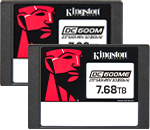Ask an Expert
Planning the right solution requires an understanding of your project and system requirements. Let Kingston's experts guide you.
Your web browser is out of date. Update your browser now for better experience on this site. https://browser-update.org/update-browser.html


Rafael has spent his career in senior Technology Product, Marketing Communications, and Business Development roles. His advisory practice focuses on the new organizational, product, and communications challenges of technological and regulatory changes, with a central aim of building and preserving revenue streams.
This highly diverse work involves subject matter expertise on information governance and compliance by design, data privacy, and emerging technologies such as AdTech, mobile & 5G, artificial intelligence, and machine learning.
If you understood that as a technical question, then maybe these terms might be considered interchangeable. Certainly, they overlap. However, thinking about them in a broader sense, perhaps as the difference between looking at an old family photo album (memory) versus browsing the contents of an office filing cabinet (storage), then they diverge in meaning quite radically.
The photo album might provoke all sorts of feelings, whereas a filing cabinet will almost certainly not-presuming the reader has not become prone to weepy nostalgia about office furniture in the remote working age of the early 2020s!
Memory in this sense is about experience and emotion, whereas storage is, by comparison merely the keeping of records. Both are important of course.
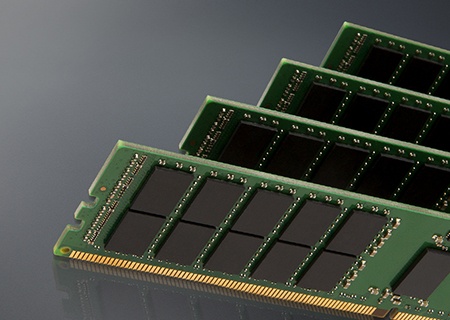
The growing distinction between storage and server memory goes a long way to explain how our experience of technology has changed so radically since computing came into its own in the 1980s. I’ve written before about those earlier times, and one of the things that is so remarkable is how much you could get out of just 16 KB of memory, in the case of my ZX Spectrum. When I expanded that with a flimsy, clunky 32 KB memory pack, it opened up way more fun, greater depth, and richer experiences than it had any right to.
Even then, memory wasn’t about storage in and of itself; it was about new possibilities. Memory enabled a computer’s CPU to take on the task of world-building. Graphics became vibrant, in that 1980s way we love still today; environments became more varied and characterful, and it wasn’t solely to do with processor power. If it wasn’t for the growing ability of memory to move large chunks of data around at ever higher speeds, the processor would be unable to deploy its full range of capabilities.
Kingston are not merely providers of storage. #KingstonIsWithYou is a message of empowerment for us as individuals: whatever we choose to do with our technology, memory is the key to getting more out of it. They understand that evolving technology has the power to change the way we live every day. There have been so many advances in memory technology, such as chip density transition from 8Gbit to 16Gbit, increases in capacity now available up to 64GB, and speed capabilities up to 3200Mhz. Storage has also seen advances in technology from SATA to NVMe and PCIe Gen3 to PCIe Gen4, which will be twice as fast as its predecessor.
This is most true of the digitization of media, culture, and the arts: a major revolution that has taken place in only a few years. I have a plastic crate full of VHS tapes in my attic that attest to the death of physical media. There are many factors that have led to today’s consumption model for music, movies, and other digital products such as computer games, which surely at this point must be accepted as a major emerging form of artistic expression.

When I first purchased a digital camera in around 2002, its removable memory card (no cloud uploads) could fit around 90–100 photos at a mighty 3.2 megapixels. This meant that while it was a massive leap up from a roll of Kodak film, I still had to think a bit about whether it was worth pressing the shutter. Today of course, 4K video at 120 frames per second can be captured with a mid-range mobile phone, with no need for a separate camera. The processor has a lot to do with it, as does software, but it is memory chips that do the other bits of heavy lifting.
As we moved from 8-bit chipsets to today’s common use of 64-bit architecture, Kingston’s advances in memory and storage manufacturing have kept pace with this terrific cycle of growth. Thinking about the next phase in our technological growth, it seems clear that Artificial Intelligence will be one of the major engines, bringing analytical and predictive abilities to everyday technology.
JJust as integrated circuits have been optimized for specific purposes such as PC CPUs, dedicated graphics cards, or controllers for industrial machinery, achieving high performance in the sphere of Artificial Intelligence requires high-performance memory and storage. Kingston is already at the forefront of memory and storage for the requirements of Artificial Intelligence (AI), machine learning, and IoT.
And what of storage, which might be in danger of being considered unglamorous by comparison? As with memory, there has been a major shift in the understanding of what storage really means, towards thinking of data as an asset, as well as a liability. The new wave of data-related legislation, from the GDPR to the California Consumer Protection Act and others, means that most organizations need a new strategy around the various data lifecycles and related processes. Storage is not the passive receptacle for data that it once was—we now need storage to be secure, replicated, encrypted, and organized.
The early 2020s was a time of seemingly unending crisis for many around the world. However, let us consider how much we are helped by technology when it comes to making the best efforts, we can be meaningfully closer to each other, both in business and within our communities and families.
For more than 30 years, Kingston has been integral to the IT backbone of companies. Kingston continues to invest millions in the development and testing of its memory and storage products to support future technology to enable AI, IoT, and TechforGood initiatives.
#KingstonIsWithYou
Was this helpful?

Planning the right solution requires an understanding of your project and system requirements. Let Kingston's experts guide you.
When you start with Kingston, choosing memory is easy.
With over 35 years of expertise, Kingston has the knowledge and resources you need to choose memory with confidence.
Simply enter the make and model number or system part number of the computer system or digital device to find the Kingston products you need.
Search by either the Kingston part number, distributor part number or manufacturer equivalent part number.
No products match your current filter selection. Try adjusting your filters to explore more options.

The differences between SSD classes lies in two components; the processor and the NAND memory.
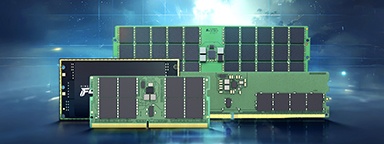
Learn how innovative memory solutions are transforming laptops, desktops, and data centers.
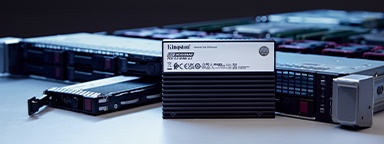
Explore how SSDs are transforming data centers with advanced technology and performance.

Learn how Kingston SSDs transformed Mission Digital’s workflow with speed & capacity.
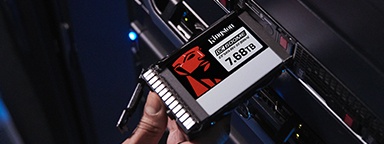
Join Simon Bestman to explore SSD benefits over HDDs and the latest storage trends.
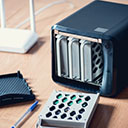
Reasons why a NAS would benefit your home or small office setup.

System Integrators in India grew their business and reputation using Kingston’s reliable products.

Here is a list of USB security features to consider for data protection.

Learn what the 3-2-1 data backup method is and why it is your best defense against ransomware.

Simon Besteman explains the current and future challenges for data centers.
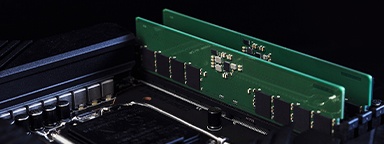
Explore DRAM technology’s evolution and gain insights into future trends in our eBook.
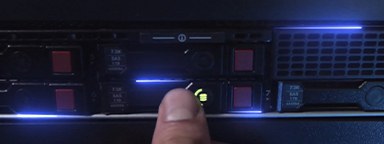
Learn how Terabytes Written and Drive Writes Per Day are defined, and their differences.
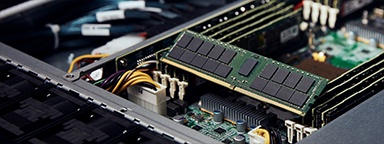
We explore the different types of memory & how to make the right choice for your server.
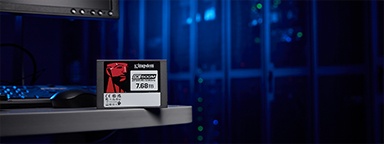
Read the whitepaper to learn how DC600M helps vSAN demand performance and efficiency.

Kingston sets industry standards with unwavering commitment to quality and reliability.
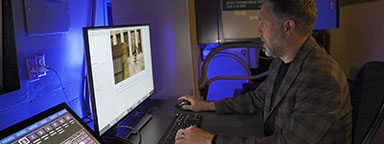
Kingston and QNAP have improved the efficiency of digital theaters with their hardware.

Questions to ask when seeking the right SSD for your organization’s data center.

Here are some key points to help you better balance price, performance, and longevity.

We explore the how media organizations can speed up workflows through storage and memory.

2023 has been a year full of challenges and innovations. But what will 2024 bring?
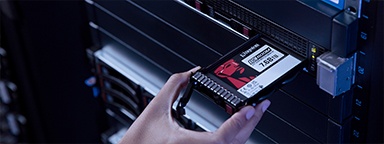
Elevate your data center with Kingston's VMware-compatible DC600M enterprise SSDs.

Kingston's server SSD and memory transformed Android Basha's production workflow.

Kingston storage solutions help improve performance photographer Ralph Larmann’s workflow.

DASH Pictures enhances their media production efficiency with Kingston SSDs.

Discover why upgrading your technology in this economy matters more than ever.

Server SSDs have higher endurance, better reliability, and improved performance over client SSDs.
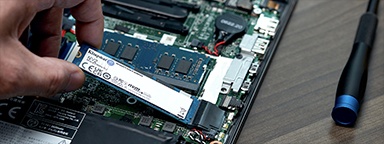
We explore the benefits of upgrading vs. replacing, and how organizations can succeed.
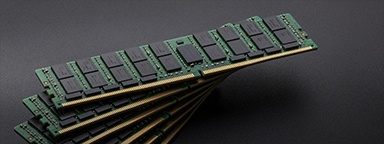
Assess your existing server hardware to extend its lifespan and maximize your investment.
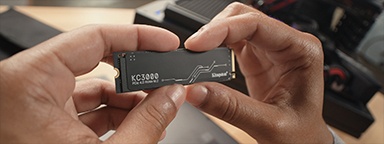
Learn about NVMe and why choosing it is beneficial to your organization’s infrastructure.

We discuss the journey of digital twin technology, exploring real-world examples for success.

In this whitepaper, we explain the benefits of SDS vs. its HW and SW RAID counterparts.
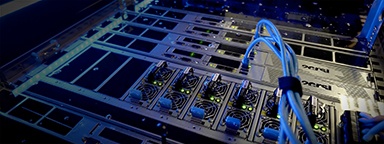
In this video, we explain how Kingston and 2CRSi work together to solve data center challenges.
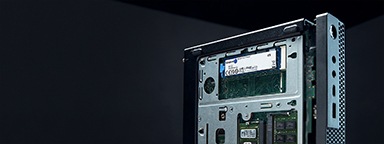
Learn why APLIGO chose Kingston SSD and memory to support their system integration business.

Choosing storage products for your enterprise is a complex process. Kingston offers our expertise.

Learn how Kingston and QNAP solutions help optimize content creation.

Learn how Kingston supported a leading hosting provider with optimal configuration.

Kingston examines how its DC1500M Enterprise NVMe SSD affects workloads and compares to competitors.

In this eBook, we speak with experts about the journey of data storage, and what the future holds.

From shooting, to post-production, to encoding, to distribution at data centres, SSDs and RAM are powering the world of OTT Media & Entertainment (M&E) video and audio streaming.

We explore the top 12 tips small and medium size enterprises can take to enhance cybersecurity.

This infographic is about the different types of data centers, the myths, and Kingston's DC solutions.

We’ve examined several factors using unique research to identify what may impact markets globally in 2022.

2021 has been a year full of challenges and innovations. But what will 2022 bring?

Read our eBook, about the rise of digital transformation and what the future holds.

Bill Mew shares his thoughts how the largest security challenges need commitment from the boardroom.

Rob May shares his thoughts on how close we are to edge computing and the security it requires.

The high-performance DC500M Server SSD is the best storage choice for a pro videographer.

Our partnership with Microchip’s RAID controllers helps deliver high performance for server storage.

Kingston helped optimize Simply Hosting’s storage in its data centers to ensure they were always on.

Learn how Kingston helped to lower power costs and increase performance so Hostmein could deliver on SLAs.

In this eBook, we speak with experts about IoT’s journey and prepare organizations for IoT’s future.

The pandemic has increased internet traffic which has placed importance on the role of data centers.
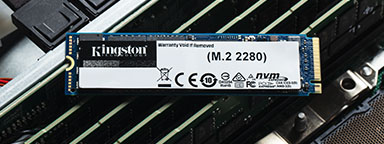
Cameron Crandall of Kingston helps you self-evaluate the need to move to your server storage solution to NVMe.

NVMe over Fabric helps CPUs to run more efficiently with lower latency and higher throughput.

Join industry experts to discuss how technology partners like Kingston support their business growth and sustainability.

Industry experts discuss topics like the key pillars of tech relationships, sustainability, and IT optimization.
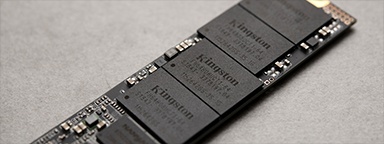
Watch this webinar to discover the benefits of NVMe SSDs.

The switch to NVMe requires a full stack review from IT architects to ensure redundancy exists on every layer of the stack.

In this eBook, we talk to industry experts as we explore the benefits of artificial intelligence, how it’s fuelling data consumption and how you can prepare your organization for the opportunities it presents.

Here are seven of the predictions of what will drive NVMe adoption for 2021.

Test SSDs to know the real endurance, changes in latency and IOPS in sequential and random read or write scenarios.

SSD test beds for enterprise servers should be done with the real hardware, OS and data. We’ll explain why.

MSP industry expert Rob May’s insight into how memory/storage upgrades help companies with remote workers.

Don’t pick the wrong type of SSD for your server. A wrong choice means a higher cost of ownership. Learn to pick the right SSDs.

What will 2021 bring in tech and trends? What do our KingstonCognate members and industry experts predict for the future?

Learn why the future of business depends on SSD-enabled SDS, and how SSD fits into software-defined storage solutions.
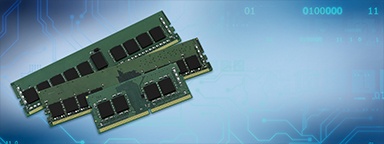
Planning a new system? Watch this video to learn about the benefits 16Gbit DRAM next-gen technology.

Learn how Hosteur supported their rapid growth & SLAs with Kingston Enterprise products & services.
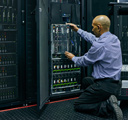
Data centers should be using server SSDs. There are many benefits over client drives and costs have come down.

NVMe is now the standard protocol for SSDs to empower data centers and enterprise environments.
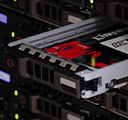
Find out how Hardwareluxx were able to manage the growth of their web traffic using Kingston's DC500M SSD.

SDS hasn’t lived up to its hype but now that NVMe is more affordable the commodity hardware is ready to deliver.

Choosing the right SSD for your server is important since server SSDs are optimized to perform at a predictable latency level while client (desktop/laptop) SSDs are not. These difference result in better uptime and less lag for critical apps and services.

Industry expert Simon Besteman provide insight on why 5G demands edge computing in micro data centers.
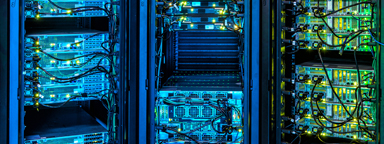
Cloud and on-premise data center managers can learn a lot from supercomputing.

What are the demands of the Data Centers in these unprecedented times? Read this article from Industry Expert, Dr Sally Eaves & she will provide you with an insight on the demands.
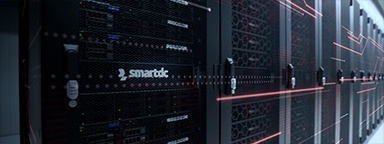
Kingston delivered compatible memory that met the performance goals of i3D.net's servers, extending the service life of their existing hardware.

Why is Edge Computing Data Centers important for 5G? Download and read Kingston’s eBook on Edge Servers and the 5G rollout.
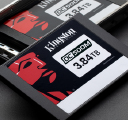
This whitepaper demonstrates how using Kingston Technology’s Data Centre DC500 SSDs can reduce your overall capital and licence costs by 39%.
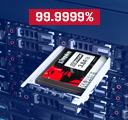
Data Center 500 Series SSDs (DC500R / DC500M) – Consistency, predictability of Latency (response time) and IOPS (I/Os Per Second) performance.
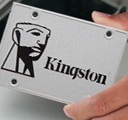
End-to-End Data Protection protects customer’s data as soon as it is transferred by the host system to the SSD, and then from the SSD to the host computer. All Kingston SSDs incorporate this protection.

SDS provides a policy-based control of data tiers, independent of the underlying storage hardware.

A percentage of space on an SSD is reserved for OP in firmware. OP can improve performance.
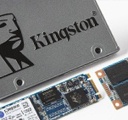
Firmware/hardware PFAIL protection is an highly effective method for preventing data loss in enterprise SSD.

Kingston uses LSI® SandForce®-based controllers in some SSDs that use proprietary tech for Garbage Collection.

HPC can require massive amounts of data. SSDs consume a fraction of the power of their spinning disk.

Kingston datacenter SSDs provide excellent resiliency to protect sensitive data in OLTP workloads.

Frequently asked questions around SSD technologies and terms like SATA, M.2, NAND, RAID, NVMe, PCIe, SAS, and keying.

Storage can be the most challenging component for VDI performance.

Testing is a cornerstone of our commitment to deliver the most reliable products on the market. We perform rigorous tests on all of our products during each stage of production. These tests ensure quality control throughout the entire manufacturing process.
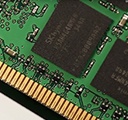
Learn how DDR4 delivers faster speeds, reduced power consumption and increased capacity over DDR3.
